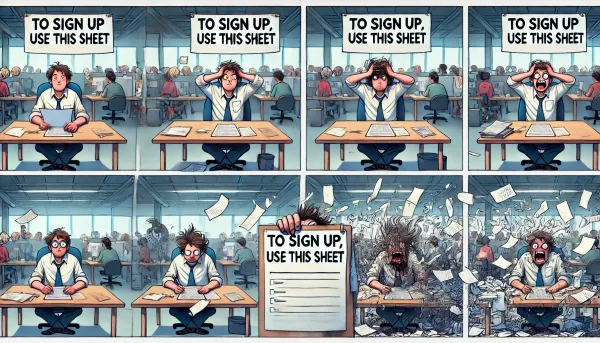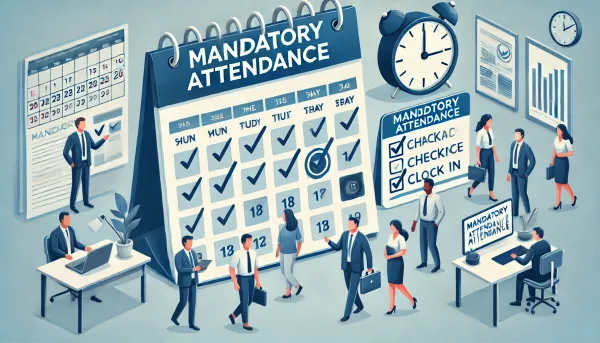Internet Central
Let me try to set this up with a few headlines from the last year or so:
- Buckle Up for Another Facebook Election
- Twitter’s Permanent suspension of @realDonaldTrump
- Facebook and Shopify boot Trump following Capitol siege
- YouTube defends choice to leave up videos with false election claims
- Youtube’s COVID-19 medical misinformation policy
- Facebook says it will ban QAnon across its platforms
- Judge Refuses To Reinstate Parler After Amazon Shut It Down
- The payments mess that almost scared OnlyFans away from sex work
I bet you have an opinion on each of these: good or bad? Censorship or not? Morally right or wrong?
What do you think?
Hah! Yeah. Whatever. It doesn’t matter what you think.
You don’t really get a say.
Facebook, Google, Twitter, Amazon, and in the OnlyFans case, credit card companies decide things now.
While we often think of companies as abstract things, ultimately they consist of people. And, as you may know, I have a lot of faith in people. I believe people to generally be decent and well intentioned. I don’t think the people running these companies are evil. Not even Mark Zuckerberg. I’m sure Mark is trying to do the right thing.
But we have to set them up for success.
As I see it, the core of the problem is that these companies have maneuvered themselves into an impossible situation.
While in the past our “online life” was a rather insignificant part of our overall life, this is increasingly less the case. We now spend a lot of our time online, and a lot of that online life is bleeding into our offline life as well.
Therefore, it is essential that our online environment is healthy.
In the ’90s and early ’00s the Internet was a pretty decentralized place. No one company, or group of companies controlled it. People bought their own domain, and ran their own email and web servers. They uploaded some HTML and voila — a website. There were various search engines and directories to discover these websites. Blogs came along with standards like RSS. People used feed readers to subscribe to the sites they wanted to follow.
Then, the centralization trend kicked off. Social networks became a thing. Personal websites became Facebook, Twitter or Instagram profiles. Blogs moved to Medium. Gmail became synonymous with e-mail.
Today, for most people “the Internet” means Facebook. E-mail means Gmail (Google). TV means Youtube (Google) and Netflix. Keeping in touch with friends means Facebook Messenger, WhatsApp (Facebook), or iMesssage (Apple). Doing (your own) research means typing a search query into Facebook, Google, or Youtube (Google). Keeping up with what’s happening in the world means Facebook and Twitter.
Even with the best of intentions, this makes these companies more powerful than anybody ought to be. The results their searches return, the parts of the page they highlight, the information they present, even the ordering of this information, impact lives.
And frankly, that’s unsettling.
Those who know me likely do not see me as the radical type. However, let me step out of character for a bit and pull the emergency break.
{< pullquote "Too much power is centralized into too few commercial entities" >}
As a result, a minor tweak in an algorithm — even made with the best of intentions — could wreak havoc. In engineering terms, these centralized entities have become single points of failure.
Single points of failure are bad.
So what to do? Do we regulate these companies, do we check their every move? I don’t think that will really work.
The only reasonable solution I see is to reverse the centralization trend and decentralize again.
This way we spread the risk.
While the world has become rather undemocratic with so much power concentrated in these large Internet entities, we still get to vote... with our feet.
Instead of all using one social network (Facebook), let’s create dozens or hundreds of social networks. They can interconnect, but ought not be controlled by a single company. To facilitate this from a technical perspective, there’s standards like ActivityPub but it has yet to really catch on. I’ve dabbled with Mastodon that is built on it (essentially a decentralized Twitter), but the problem with social network particularly is that... you need the people you care about to be there. That’s not (yet) the case for Mastodon. Aave, a big player in the crypto space, is supposedly working on a blockchain-based decentralized twitter alternative. Who knows, that may get traction (more on crypto later).
Instead of all using Gmail for e-mail, let’s use some of the other choices out there. Infrastructurally, e-mail is built on SMTP so the switching cost is fairly minimal. About half a year ago I switched my personal email from Gmail to Fastmail myself. It’s a paid email service, but it’s reliable, fast and... not owned by Google. Also, my e-mail address is now attached to my personally owned domain, so I can move it to any other e-mail provider in the future.
Instead of using Facebook Messenger, WhatsApp (Facebook again) or iMessage for private messaging, let’s use one of the decentralized messengers. Matrix is one option, although I know nobody that uses it. Instead, I use Signal which is still centralized (although not owned by one of the “big tech” companies), but at least ensures absolute privacy. It’s something.
Instead of publishing your articles on Medium and being bullied into putting them behind a paywall, host your blog or personal site yourself. We have DNS and HTTP which means we can all register our own domain name and host our own websites wherever we want. Mine is now hosted by Netlify, but I could move it anywhere else tomorrow. Even if you host it on WordPress.com, as long as you use your own domain, you can move it whenever you want. I myself have moved mine many times over the last 20 years (even in and out of Medium).
Instead of relying on Facebook or Twitter to see what’s happening in the world, let’s use (RSS) feed readers again, and regain full control of the content we see. For this I use Feedly myself, which has a decent iOS and web app. After primarily relying on Twitter (and at some level Facebook) as a source of news before, I’m now moving back to a feed reader. I decide what sites I subscribe to and in what order I see this content, not “enhanced” with various schemes or Russian ad buys.
Instead of using a podcast app like Apple Podcasts or Spotify, use one that is more independent, like Overcast (iOS) or Pocket Casts (Android). While Apple Podcasts and Spotify are largely still built on the open (RSS feed-based) infrastructure, this is slowly shifting. Spotify bought Joe Rogan exclusively into its silo, and Apple is now trying to lure in people as well, I’m sure there’s more to come. Sadly, the reality is that Apple owns their podcast directory, which is basically what every single podcast application relies on for podcast discovery (unless you add feeds directly). This is problematic and we should have a decentralized version.
Instead of using Google Chrome or Microsoft Edge as a browser, use something more independent like Brave or Firefox. I’ve been using Brave for some years now. It’s essentially Chrome stripped of Google stuff, and solid ad and tracker blocking built in. In addition they increasingly add more “out there” technology natively into the browser (more on the “out there” stuff a bit later) like a BitTorrent client, IPFS, and Tor. Even if you don’t use any of the latter, a Google-less ad/tracker blocking browser should be enough of a selling point already.
Instead of using Google, dabble a bit with alternative search engines. Having a decentralized search engine is probably not going to happen, but mixing it up by using multiple is an option. For some time I switched my default search engine to DuckDuckGo. However, I found that quite often I wasn’t always convinced I found the best possible results and then manually reran results in Google. The last week or two I’ve been using Brave’s own search engine. Mix it up.
This one is self-serving, but I couldn’t resist: instead of all relying on Slack or Microsoft Teams for group messaging, let’s use self-hosted alternatives like Mattermost. Disclosure: I work there, but it is a good option if you want to be in control of your own data and availability rather than relying on a more centralized option. To talk between different messaging products, there are some solutions like matterbridge, but in terms of interoperability more can be done.
Stepping it up
Not radical enough for you? Alright, let’s step up this baby.
Money: Banks and payment providers have a lot of centralized power. If they collapse... well you know what happens, as it happened a few times already. You can go decentral with your money and look at cryptocurrencies. I have to confess that until recently I always used “blockchain” sarcastically, but recently have been deep diving a bit more into the current cryptospace and there’s a lot of interesting stuff happening there — but that’s out of scope for this post. More on this in the future. You can sell your dollars for Bitcoin or Ether, or one of the many Stablecoins and safely and reliably pay people without interference of centralized banking institutions. El Savador has accepted Bitcoin as an official currency, they’re now rolling out BTC ATMs. Cuba is accepting Bitcoin as well.
File/website hosting: If you don’t want to rely or trust a single company to host your website or files, you can use something like the previously referenced IPFS, Swarm or Arweave — which are fully decentralized file hosting systems, to ensure your content cannot be taken down.
DNS: In the cryptospace there are some more hardcore “can’t take this down” alternatives to e.g. DNS. In Ethereum there is a system called ENS, where the blockchain ensures you keep control over your .eth domains without having to rely on any (by itself already relatively decentralized) domain registration infrastructure of regular DNS.
For realzies?
Let’s do a bit of reality check here, though.
Your average Joe is not going to register a domain name and host a personal website somewhere, right? I’m sure there are plenty regular-Joe-friendly services that exist that allow you to do this — but you’d still have to pay, it wouldn’t compete with Facebook’s free profile pages.
Also, this whole social network thing is tough. I mentioned some “big tech” alternatives above, but as you will have noticed, any of them involving any type of social network are problematic. You’d need to get everybody else to switch as well. How do we solve that problem?
Frankly, I don’t have an easy solution. Offering reasonable alternatives and educating people is the only option I see right now. That is, unless governments would really come down on these companies and just shut them down. In some places, like China, this has already happened (albeit for different reasons). I wouldn’t consider China an amazing example of how to handle things, though.
Come to think of it, government is kind of a big centralized power.
🤔
But seriously. Muse on this a bit. And vote with your feet.
Decentralize all the things! Power to the people!
If you discovered this post through LinkedIn or Twitter (very likley), consider subscribing to its Atom feed instead. Or subscribe to the mailing list to receive updates via e-mail (ideally not Gmail).




